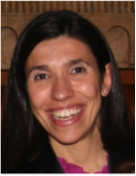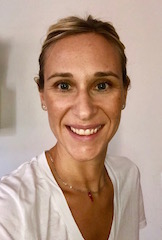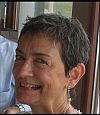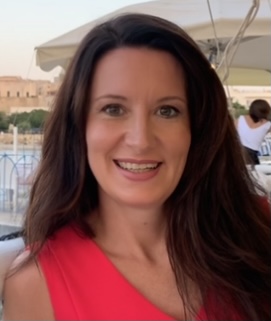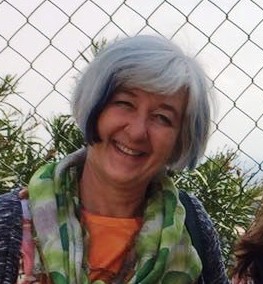Studying at the University of Verona
Here you can find information on the organisational aspects of the Programme, lecture timetables, learning activities and useful contact details for your time at the University, from enrolment to graduation.
Academic calendar
The academic calendar shows the deadlines and scheduled events that are relevant to students, teaching and technical-administrative staff of the University. Public holidays and University closures are also indicated. The academic year normally begins on 1 October each year and ends on 30 September of the following year.
Course calendar
The Academic Calendar sets out the degree programme lecture and exam timetables, as well as the relevant university closure dates..
| Period | From | To |
|---|---|---|
| Sem. IA | Sep 25, 2017 | Oct 28, 2017 |
| Sem. IB | Nov 13, 2017 | Dec 16, 2017 |
| Sem. IIA | Feb 26, 2018 | Apr 7, 2018 |
| Sem. IIB | Apr 23, 2018 | May 30, 2018 |
| Session | From | To |
|---|---|---|
| Sessione Invernale | Jan 22, 2018 | Feb 23, 2018 |
| Sessione Estiva | Jun 11, 2018 | Jul 20, 2018 |
| Sessione Autunnale | Aug 20, 2018 | Sep 21, 2018 |
| Period | From | To |
|---|---|---|
| All Saints Day | Nov 1, 2017 | Nov 1, 2017 |
| Immaculate Conception | Dec 8, 2017 | Dec 8, 2017 |
| Christmas break | Dec 22, 2017 | Jan 7, 2018 |
| Easter break | Mar 30, 2018 | Apr 3, 2018 |
| Liberation Day | Apr 25, 2018 | Apr 25, 2018 |
| Labour Day | May 1, 2018 | May 1, 2018 |
| Patron Saint Day | May 21, 2018 | May 21, 2018 |
| Republic Day | Jun 2, 2018 | Jun 2, 2018 |
| Summer break | Aug 13, 2018 | Aug 18, 2018 |
| Description | Period | From | To |
|---|---|---|---|
| prima parte del primo semestre | Lab. IA | Oct 30, 2017 | Nov 11, 2017 |
| seconda parte del primo semestre | Lab. IB | Jan 8, 2018 | Jan 20, 2018 |
| prima parte del secondo semestre | Lab. IIA | Apr 9, 2018 | Apr 21, 2018 |
| seconda parte del secondo semestre | Lab. IIB | May 31, 2018 | Jun 9, 2018 |
Exam calendar
Exam dates and rounds are managed by the relevant Humanistic Studies Teaching and Student Services Unit.
To view all the exam sessions available, please use the Exam dashboard on ESSE3.
If you forgot your login details or have problems logging in, please contact the relevant IT HelpDesk, or check the login details recovery web page.
Should you have any doubts or questions, please check the Enrollment FAQs
Academic staff
 monica.antonello@univr.it
monica.antonello@univr.it
 3409616648
3409616648
 valentina.biino@univr.it
valentina.biino@univr.it
 marisa.bonafini@univr.it
marisa.bonafini@univr.it
 paolamaria.caleffi@univr.it
paolamaria.caleffi@univr.it
 antonio.cosentino@univr.it
antonio.cosentino@univr.it
Ganzerla Luca Giovanni Michelangelo
 lucagiovanni.ganzerla@univr.it
lucagiovanni.ganzerla@univr.it

Ghirotto Luca
 luca.ghirotto@univr.it
luca.ghirotto@univr.it
 licia.landi@univr.it
licia.landi@univr.it
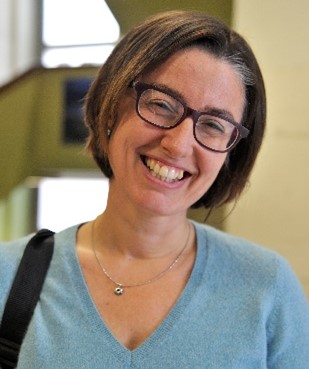
La Rana Adele
 adele.larana@univr.it
adele.larana@univr.it
 giuseppe.longo@univr.it
giuseppe.longo@univr.it
 beatrice.melodiafesta@univr.it
beatrice.melodiafesta@univr.it

Migliorati Lorenzo
 lorenzo.migliorati@univr.it
lorenzo.migliorati@univr.it
 045802 8135
045802 8135
 paolo.nitti@univr.it
paolo.nitti@univr.it
 luca.odini@univr.it
luca.odini@univr.it
 michele.picotti@univr.it
michele.picotti@univr.it
 stefania.pontrandolfo@univr.it
stefania.pontrandolfo@univr.it
 cristina.richieri@univr.it
cristina.richieri@univr.it
 paola.schiano@univr.it
paola.schiano@univr.it
 3383725508
3383725508
 federica.zantedeschi@univr.it
federica.zantedeschi@univr.it
Study Plan
The Study Plan includes all modules, teaching and learning activities that each student will need to undertake during their time at the University.
Please select your Study Plan based on your enrollment year.
1° Year
| Modules | Credits | TAF | SSD |
|---|
2° Year activated in the A.Y. 2018/2019
| Modules | Credits | TAF | SSD |
|---|
3° Year activated in the A.Y. 2019/2020
| Modules | Credits | TAF | SSD |
|---|
4° Year activated in the A.Y. 2020/2021
| Modules | Credits | TAF | SSD |
|---|
English laboratory 4th year
5° Year activated in the A.Y. 2021/2022
| Modules | Credits | TAF | SSD |
|---|
English laboratory 5th year
| Modules | Credits | TAF | SSD |
|---|
| Modules | Credits | TAF | SSD |
|---|
| Modules | Credits | TAF | SSD |
|---|
| Modules | Credits | TAF | SSD |
|---|
English laboratory 4th year
| Modules | Credits | TAF | SSD |
|---|
English laboratory 5th year
| Modules | Credits | TAF | SSD |
|---|
Legend | Type of training activity (TTA)
TAF (Type of Educational Activity) All courses and activities are classified into different types of educational activities, indicated by a letter.
Intercultural Education and Theories of dialogue and integration (2020/2021)
The teaching is organized as follows:
TEORIE DEL DIALOGO E DELL'INTEGRAZIONE
Credits
5
Period
See the unit page
Academic staff
See the unit page
Learning outcomes
------------------------
MM: TEORIE DEL DIALOGO E DELL'INTEGRAZIONE
------------------------
Acquire theoretical and methodological knowledge that allows you to design and conduct "good dialogic experiences" within school contexts. To know how to offer educational environments to help people think for themselves and learn to think together. Knowing how to effectively guide conversations with and between children in preschool and elementary school, according to the maieutic approach. To this end, the course aims to support students in the acquisition of knowledge and skills with respect to: - to the philosophies and theoretical references used in research on dialogue in school settings; - methods and techniques useful for the analysis of conversational styles; - discursive practices that facilitate the development of independent thinking in children;
------------------------
MM: PEDAGOGIA INTERCULTURALE
------------------------
The goals of the course are: 1. to provide students with a broad understanding of Intercultural Pedagogy, and how it can offer the best response to issues associated with pluralism, globalisation, and the presence of multiculturalism and multiple ethnicities within our societies (with particular focus on the relationships between diversity and social injustice, between ethnocentrism and prejudice, and between language and identity). 2. To explore what intercultural education means in practice in the context of the Italian school system (pre-school and primary level). What forms does it take? What specific challenges do educators face? 3. To provide pre-service teachers with methodological tools for cultivating both their own intercultural competences and those of their students. With this in mind, participants (pre-service teachers) will be encouraged to develop better personal awareness and learn how to help their students acquire a greater level of intercultural sensitivity. Required learning outcomes: acquisition of knowledge and abilities Kindergarten and Prymary School 1st descriptor: Knowledge and Understanding B y the end of the course, students will be expected: - to understand the epistemological foundations of pedagogy and intercultural education; - to understand what forms, modes and characteristics intercultural education adopts in the Italian school and pre-school system (in theoretical, regulatory and methodological terms); - to understand the relationship between identity and a person’s first language; - to be familiar with the principal models of intercultural competence. 2nd descriptor: Understanding and application of acquired knowledge By the end of the course, students will be expected to have developed: - the ability to analyse the governmental publications that are of greatest relevance to an intercultural approach to education, and use these documents to guide their own work in the classroom; - the ability to use models of intercultural competence to are been tailored for/addressed to a specific group or class.
Program
------------------------
MM: TEORIE DEL DIALOGO E DELL'INTEGRAZIONE
------------------------
The course will present the principles of a dialogic practice understood as an education of inner and intersubjective thought inspired by the principle of caring. Specifically, the following themes will be addressed: The value of dialogue within the educational process and the social construction of knowledge. The Socratic Dialogue: a cognitive practice for reasoning together and learning to think for oneself in depth. The maieutic approach in school: experiences and current research. The theoretical foundations and training techniques of the MelArete project. The role of the adult in the dialogue with children within school contexts: recognizing and reflecting on different communication styles. Methods and techniques for analyzing group conversations.
------------------------
MM: PEDAGOGIA INTERCULTURALE
------------------------
Contents: Ist part Starting from ourselves Recognition in educational contexts - Difference as a constitutive element of human life - The theory of recognition The three steps for an intercultural approach - Decentralization - The reference framework of the other - Negotiation and intercultural mediation Obstacles to understanding the other - The representations - The forms of ethnocentrism - Limits of human judgment - Professional models and techniques IInd part The school context: ‘a mixed bag’ - Life and experiences of children and families - Insights: the ‘second generations’ - School ‘a mixed bag’ - Micro-aggressions - The teachers’ point of view on diversity - Ministerial documents IIIrd part Teachers intercultural training and competences - The construct of intercultural competence. - A model of intercultural competence for primary and infant school teachers - First level intercultural competence - Second level intercultural competence IVth part Relationship with parents from here and from elsewhere Teaching methods and learning settings Traditional lectures using additional materials (slides, video clips, extracts from government documents, other texts, etc.), individual exercises (personal skills and competencies) and group exercises (case studies, interviews, etc.) Bibliography 1. P. Dusi (2012). la comunicazione docenti-genitori. Milano: Franco Angeli. 2. Recommended reading list This list of titles applies equally to the programs for attending students and for non-attending students. Additional recommendations will be provided to attending students during the course of the lessons.
Bibliography
| Author | Title | Publishing house | Year | ISBN | Notes |
|---|---|---|---|---|---|
| LUIGINA MORTARI, MARCO UBBIALI, LARA VANNINI | MELARETE, educazione all'etica per la scuola dell'infanzia | VITA E PENSIERO | 2020 | 9788834341520 | |
| Luigina Mortari | MelArete (Volume I). Cura Etica Virtù | Vita e Pensiero | 2019 | 9788834335239 | |
| Luigina Mortari (a cura di) | MelArete (Volume II). Ricerca e pratica dell'etica delle virtù | Vita e Pensiero | 2019 | ||
| Dusi, Paola | Il riconoscimento. alle origini dell'aver cura nei contesti educativi. | Franco Angeli | 2016 | ||
| Damiano, Elio | Intercultura a scuola. Stato dell'arte. | Vita e Pensiero | 2008 |
Examination Methods
------------------------
MM: TEORIE DEL DIALOGO E DELL'INTEGRAZIONE
------------------------
Several options are available: written papers for those attending the course or oral presentations for those not attending the course. In the written essay the attending students will be able to present: - an educational-didactic project characterized by a maieutic approach (preschool or elementary school); - the analysis of a group dialogue recorded within the school context in order to highlight the conversational moves and communicative styles. Students will be assessed on their ability to thoroughly and critically re-elaborate the content presented during the course, and on their understanding of the fundamental concepts present in the reference texts.
------------------------
MM: PEDAGOGIA INTERCULTURALE
------------------------
Exams: Learning outcomes will be assessed through an individual written essay Nature of the assessment and material covered: - An individual written report, which – taking as its starting point the collected interviews (at least 2) - should critically analyse them using, as appropriate, the concepts, theoretical models and interventions covered during the course. Assessment criteria The assessment result will be expressed as a score out of a possible thirty marks Marks will be awarded on the basis of the following performance criteria: -command of specialist terminology pertaining to the sector in question; - the rigorousness in the administration and transcription of the interviews (using the format posted in moodle). - by analyzing and discussing the collected interviews; - by citing the texts indicated in the bibliography and other texts identified during the research process, - demonstration of personal reflection on the material studied and the ability to reconcile theory and practice; - by providing a personal interpretation of, and reflection on, the lessons attended bibliographical sources. - correct grammar and syntax. Instructions for drafting the report* The data analysis process should be supported by references to the texts covered during the course (and to other works and studies known to the student or students). The length of the report is to be decided by the student himself. The recommended minimum length, however, is 10 pages (each of 3,000 characters) plus the bibliography and appendices (which should include a complete transcription of the data collected through interviews) The report should include: - a cover (with full names and matriculation numbers of the student or students, the name of the degree course, the project title, and a contact email address and telephone number; - an abstract/brief summary of the project; - introduction; - data analysis; - discussion of data analysis; - conclusion; - bibliography - appendices: all data collected via interviews. The text should be subdivided into paragraphs and supplemented, in a proper academic fashion, by footnotes and final bibliography. The report must be submitted by email to the course leader at least five days prior to the exam date selected by the student.
Type D and Type F activities
Modules not yet included
Career prospects
Module/Programme news
News for students
There you will find information, resources and services useful during your time at the University (Student’s exam record, your study plan on ESSE3, Distance Learning courses, university email account, office forms, administrative procedures, etc.). You can log into MyUnivr with your GIA login details: only in this way will you be able to receive notification of all the notices from your teachers and your secretariat via email and soon also via the Univr app.
Stage e Tirocini
Le attività di tirocinio indirette e dirette, per complessive 600 ore pari a 24 crediti formativi universitari, come stabilito dal D.M. 249/2010, hanno inizio nel secondo anno di corso e si svolgono secondo modalità tali da assicurare un aumento progressivo del numero dei relativi crediti formativi universitari fino all'ultimo anno.La struttura generale del tirocinio prevede:
- II annualità 100 ore di tirocinio pari a 4 CFU
- III annualità 100 ore di tirocinio pari a 4 CFU
- IV annualità 175 ore di tirocinio pari a 7 CFU
- V annualità 225 ore di tirocinio pari a 9 CFU.
Il tirocinio è seguito da insegnanti tutor coordinatori e da tutor organizzatori distaccati, rispettivamente a tempo parziale e a tempo pieno, presso il CdS. Esso prevede attività che si sviluppano secondo modalità di partecipazione periferica e modalità di partecipazione attiva: tali attività dovranno essere, adeguatamente documentate da parte dello studente e saranno supervisionate dai tutor competenti.
La frequenza alle attività di tirocinio è obbligatoria.
Documents
| Title | Info File |
|---|---|
|
|
pdf, it, 115 KB, 23/06/21 |
Progetto Dinamo corsi di formazione continua
I corsi del Progetto Dinamo sono una proposta di formazione continua per i/le docenti della scuola dell'infanzia e primaria in servizio elaborata dal Corso di Studi in Scienze della Formazione Primaria dell'Università di Verona.
La loro frequenza, in numero limitato, è aperta anche agli studenti di Scienze della formazione primaria.
L'iscrizione non comporta oneri per gli studenti.
Per i corsi di 8 ore sarà riconosciuto 1 CFU nei crediti liberi; per quelli di 16 ore i crediti liberi riconosciuti saranno 2.
Le modalità di iscrizione saranno comunicate e gestite tramite i rappresentanti degli studenti.
Documents
| Title | Info File |
|---|---|
|
|
pdf, it, 198 KB, 29/08/22 |
Gestione carriere
Linguistic training CLA
Practical information for students
Documents
| Title | Info File |
|---|---|
|
|
pdf, it, 325 KB, 02/05/23 |
|
|
pdf, it, 212 KB, 02/05/23 |
|
|
pdf, it, 131 KB, 02/05/23 |
Student mentoring
Student login and resources
Graduation
Documents
| Title | Info File |
|---|---|
|
|
pdf, it, 434 KB, 07/02/24 |
|
|
pdf, it, 418 KB, 30/11/23 |
|
|
pdf, it, 131 KB, 19/03/24 |
eTwinning
Il Corso di SFP di Verona fa parte del Gruppo Europeo per la formazione eTwinning per i futuri insegnanti – Initial Teacher Education (ITE). Seminari di presentazione della piattaforma e delle sue potenzialità, introduzione alla comunità e/o laboratori sull’uso della stessa sono proposti annualmente come parte integrante dei Laboratori di Lingua Inglese per la Professionalità Docente, e quindi come parte dell’offerta formativa; per il II anno anche con attività progettuale in lingua inglese, studente-studente o a piccoli gruppi.
Per il I anno, a partire dall’ A.A. 2017/2018 è stato realizzato con il supporto dell’USR Veneto e la collaborazione delle ambasciatrici eTwinning un incontro seminariale di presentazione della comunità e piattaforma eTwinning, come parte del Laboratorio di Lingua Inglese per la Professionalità docente. Gli studenti svolgono attività di ricerca e reperimento materiale nel portale eTwinning, studiano alcuni progetti considerati “buone pratiche” e si confrontano con una breve attività in piccolo gruppo sui primi passi di introduzione e orientamento ad un progetto eTwinning. Solitamente sono coinvolti circa un centinaio di studenti.
Per il II anno, a partire dall’A.A. 2020/2021, è stato introdotto un Laboratorio eTwinning (12 ore – 1CFU) di progettualità didattica in lingua inglese. Gli studenti svolgono attività individuali all’interno della Comunità volte a costruire una rete di partner e cogliere ogni potenzialità offerta dalla piattaforma. Inoltre, viene proposta una simulazione progettuale, in piccoli gruppi, dall’introduzione dei partner alla valutazione e disseminazione dei risultati di un progetto eTwinning. Solitamente partecipano circa un centinaio di studenti. Al termine del modulo è richiesto un portfolio digitale in lingua inglese. I futuri docenti esercitano contemporaneamente competenze linguistiche, digitali e sociali facilmente riutilizzabili nella professione futura.
Per il V anno, a partire dal AA 2022/2023, è stato introdotto, all'interno del Laboratorio di Lingua Inglese, un Laboratorio eTwinning di progettualità didattica con un altro ITE (12 ore – 1CFU).
Nell'a.a. 2022/2023 è stata attivata e realizzata una collaborazione con SFP - Università di Cagliari.
Nell'a.a. 2023/2024 si è attivata una collaborazione con l'Università di Castilla-La Mancha (Spagna).
Le attività realizzate sono state presentate durante il Coordinamento Nazionale eTwinning ITE
- a Firenze il 17 e 18 marzo 2022
- e a Lecce il 15 e 16 maggio 2023











